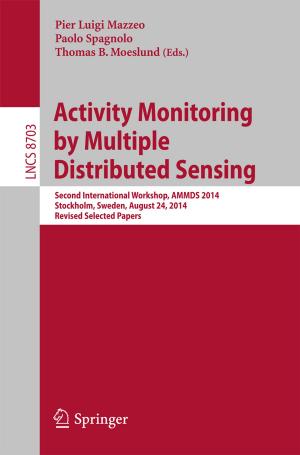E-Learning in the Workplace
A Performance-Oriented Approach Beyond Technology
Nonfiction, Reference & Language, Education & Teaching, Educational Theory, Adult & Continuing Education, Teaching, Computers & Technology| Author: | Minhong Wang | ISBN: | 9783319645322 |
| Publisher: | Springer International Publishing | Publication: | September 18, 2017 |
| Imprint: | Springer | Language: | English |
| Author: | Minhong Wang |
| ISBN: | 9783319645322 |
| Publisher: | Springer International Publishing |
| Publication: | September 18, 2017 |
| Imprint: | Springer |
| Language: | English |
This book analyzes the nature and requirements of workplace e-learning based on relevant theories such as adult learning, community of practice, organizational learning, and the systems thinking. By integrating considerations on organization, pedagogy and technology, a performance-oriented e-learning framework is then presented, where performance measurement is used to: 1) clarify and link organizational goals and individual learning needs, 2) direct learning towards work performance; and 3) support social communication and knowledge sharing and management in the workplace.
E-learning and related emerging technologies have been increasingly used by organizations to enhance the skills and performance of knowledge workers. However, most of the efforts tend to focus on the technology, ignoring the organizational context and relevant pedagogies of workplace learning. Many e-learning projects in the workplace settings fail to connect learning with work performance and align organizational goals and individual needs in a systemic way. Moreover, there is insufficient effort on externalizing and transferring tacit knowledge embedded in practices and expertise, based on which to maintain and expand knowledge assets for sustainable development.
The book presents a systemic theoretical framework, design principles, and implementation methods, together with a case study to demonstrate the use and effectiveness of the performance-oriented approach to workplace e-learning, in which organizational, social and individual perspectives are integrated in a systemic way. The performance-oriented approach to workplace e-learning enables self-regulated and socially constructed learning activities to be clearly motivated and driven towards the goal of performance improvement, and makes learning at the organizational, social and individual levels integrated in a systemic way. The effects of individual and social learning support and organizational learning environment on employees’ motivation to use performance-oriented e-learning are also investigated.
This book analyzes the nature and requirements of workplace e-learning based on relevant theories such as adult learning, community of practice, organizational learning, and the systems thinking. By integrating considerations on organization, pedagogy and technology, a performance-oriented e-learning framework is then presented, where performance measurement is used to: 1) clarify and link organizational goals and individual learning needs, 2) direct learning towards work performance; and 3) support social communication and knowledge sharing and management in the workplace.
E-learning and related emerging technologies have been increasingly used by organizations to enhance the skills and performance of knowledge workers. However, most of the efforts tend to focus on the technology, ignoring the organizational context and relevant pedagogies of workplace learning. Many e-learning projects in the workplace settings fail to connect learning with work performance and align organizational goals and individual needs in a systemic way. Moreover, there is insufficient effort on externalizing and transferring tacit knowledge embedded in practices and expertise, based on which to maintain and expand knowledge assets for sustainable development.
The book presents a systemic theoretical framework, design principles, and implementation methods, together with a case study to demonstrate the use and effectiveness of the performance-oriented approach to workplace e-learning, in which organizational, social and individual perspectives are integrated in a systemic way. The performance-oriented approach to workplace e-learning enables self-regulated and socially constructed learning activities to be clearly motivated and driven towards the goal of performance improvement, and makes learning at the organizational, social and individual levels integrated in a systemic way. The effects of individual and social learning support and organizational learning environment on employees’ motivation to use performance-oriented e-learning are also investigated.















